Cloud computing has become the main driving force for most businesses today since applications are moving out of on-premise data servers to the cloud. This allows us to increase agility and save costs.
Going serverless also helps protect your company’s data since the cloud provides automated backups and advanced security measures. Moreover, clouds are scalable, flexible, and provide peace of mind.
Nowadays, nearly 53% of corporate data is stored and processed in the cloud, but a great deal of business information is still stored in on-premises data centers. And according to Gartner, cloud infrastructure as a service (IaaS) suffers 60% fewer security accidents when compared to on-premises data hubs. That’s a pretty good reason to migrate to the cloud, isn’t it?
3 Main Types of Cloud Computing Services
Public computing services share the same conceptual framework of infrastructure. They are so similar that it’s better to think about cloud computing services as a pyramid where each layer is built upon the same basic structure. For a better understanding, see the picture below.
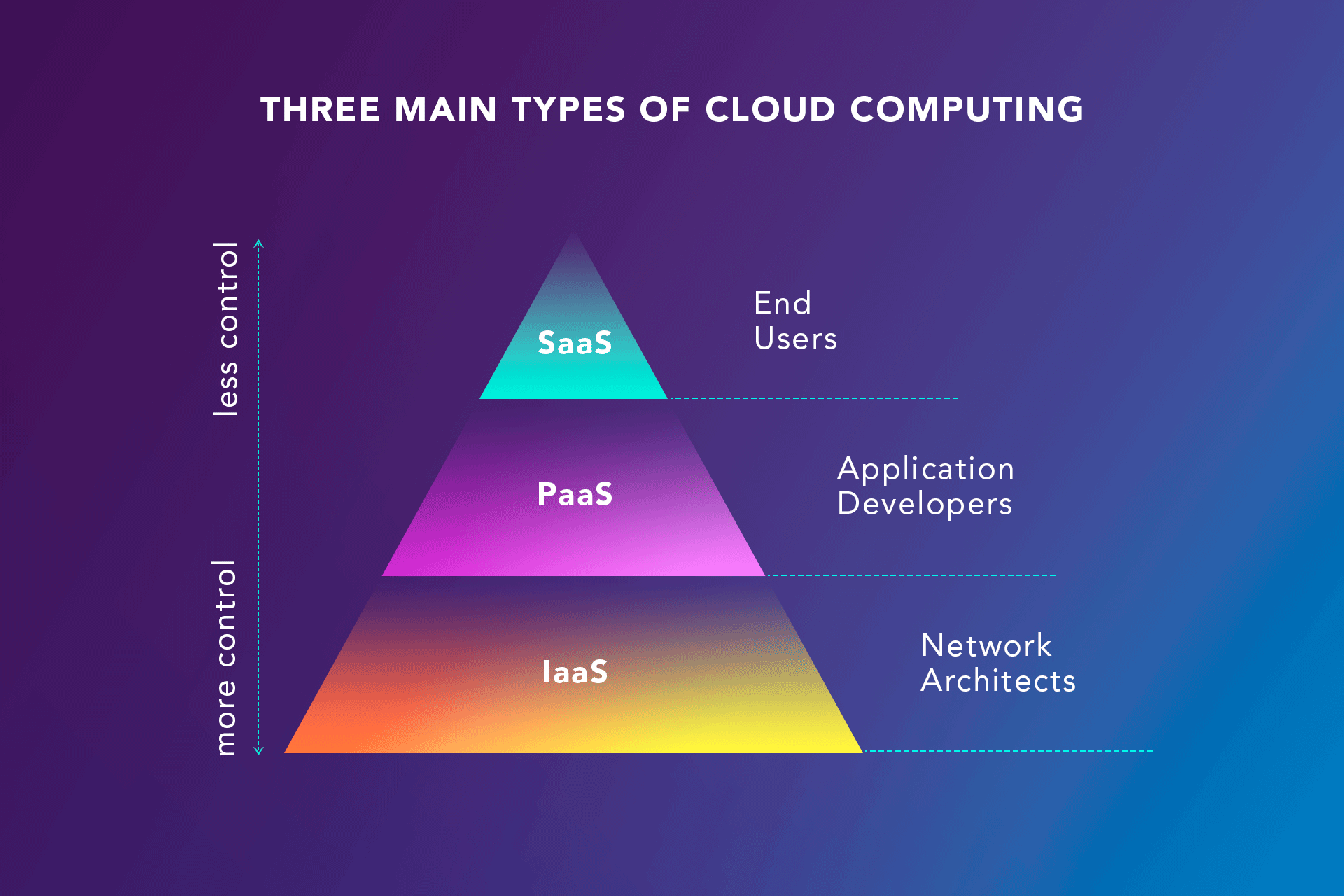
Infrastructure as a Service (IaaS)
IaaS is the basic and the most flexible type of cloud service available. An IaaS provider takes care of everything required for its smooth work (data storage space, servers, etc.) In turn, customers can fully customize IaaS to their specific business needs.
IaaS helps businesses eliminate the capital expense of building up in-house infrastructure. It’s a superb option for startups and SMEs to create their network without buying all the hardware and software. It also takes away the day-to-day burdens of managing the following infrastructure allowing your IT departments to focus on core business needs instead of data hub maintenance.
- Examples of IaaS: AWS, Microsoft Azure, Cisco Metacloud
Read also: Cloud migration
Platform as a Service (PaaS)
PaaS offers more specialized services when compared to IaaS. It provides the framework to develop, test, deploy, manage, and update applications. PaaS takes advantage of the same infrastructure as IaaS but includes operating systems, dev tools, middleware, and database management systems required for software application development. PaaS is a one-stop solution for any company that develops web-based apps and complex software solutions.
Since the platform is accessible from any part of the world, it facilitates the work of remote teams and grants 24/7 access to the development assets to speed up development work. Most PaaS platforms come fully loaded with pre-coded apps integrated into the platform that greatly reduce coding time and help get the product to the market much faster.
Examples of PaaS: Microsoft Azure, AWS Elastic Beanstalk, Apache Stratos
Read also: Cloud app development
Software as a Service (SaaS)
SaaS is the most familiar type of cloud computing for most people. Being on top of the cloud computing pyramid, SaaS is a fully-featured development solution ready to work right of the box. SaaS providers care for the infrastructure, operating systems, all middleware, and any data required to develop and deploy applications.
Most SaaS apps run through web browsers and don’t require downloads and installations. This allows IT teams and companies to streamline processes using hybrid or multi-cloud deployment.
SaaS programs allow companies to scale processes when they need them. With SaaS applications, companies don’t need to invest in hardware or software.
Examples of SaaS: Microsoft Office 365, G Suite apps, Salesforce
Read also: Partnership with cloud providers
And today, we’d like to focus on AWS and Microsoft Azure as IaaS services and help you spot the best cloud platform for your needs.
Amazon vs. Azure
Amazon Web Service (AWS) and Microsoft Azure are the biggest names when it comes to public cloud service providers, according to Forrester. But which one suits your business needs? To help you make the right decision, let’s discuss the cloud services offered by AWS and Azure and discover the key differences between them.
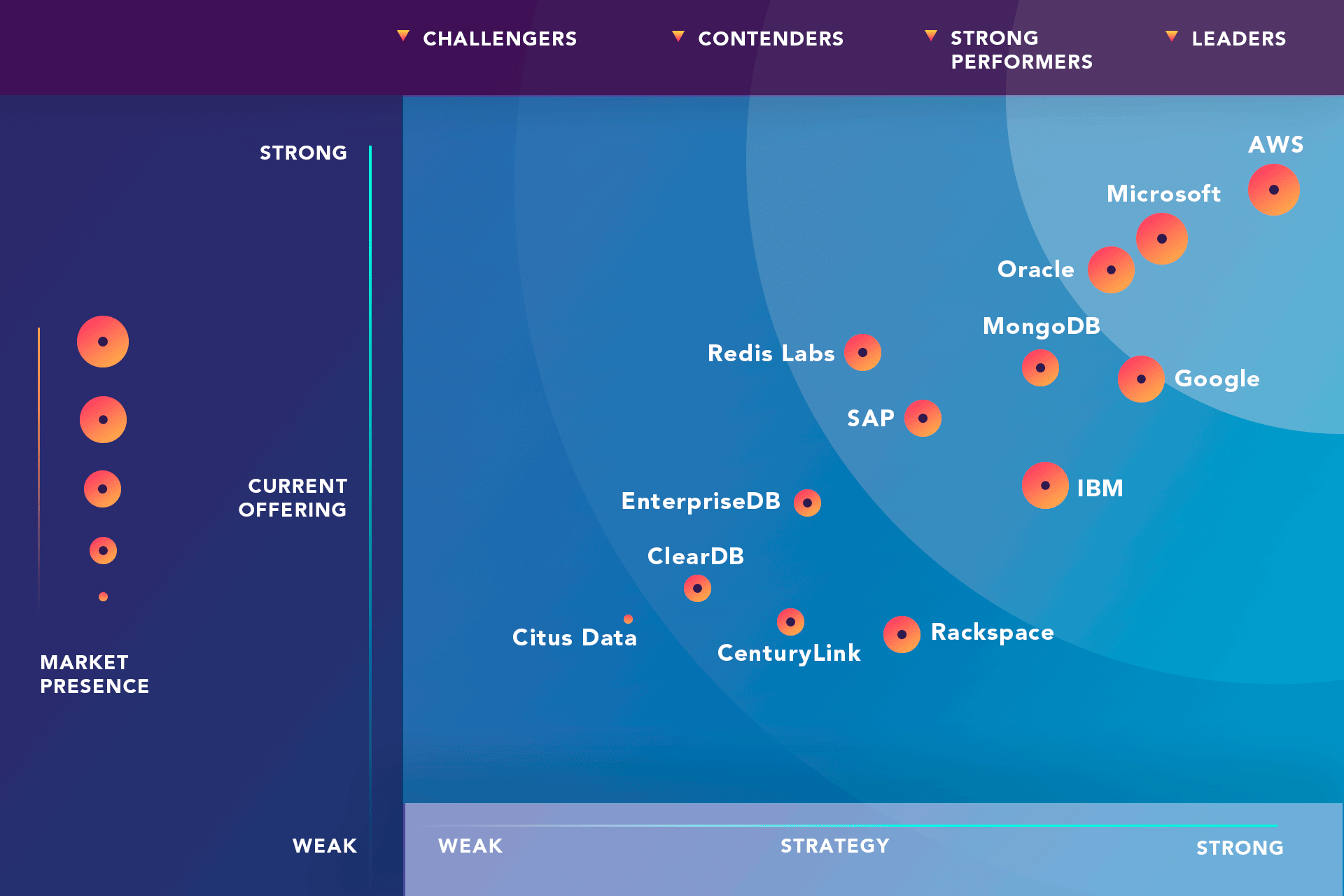
Amazon Web Service (AWS)
AWS is the leader in the PaaS and IaaS market. AWS was founded in 2006. AWS offers the following components:
- The Elastic Compute Cloud (EC2) is single- and multitenant hosting that uses Xen virtualization;
- The EC2 Container Service (ECS) is the Docker container service;
- The Amazon Simple Storage Service (S3) is the object storage with CDN potential;
- AWS Batch is responsible for the batch computing service;
- Elastic Beanstalk is a PaaS tool that helps manage AWS services;
- Lambda is an event-driven platform for serverless computing;
- AWS Marketplace is a platform inside AWS where you can find third-party services and software;
- AWS Direct Connect is an application for partner exchange.
AWS is doing its best to provide first-rate single-tenant cloud infrastructure. Thus being said, AWS solves all cloud-related needs your business may have, regardless of your location.
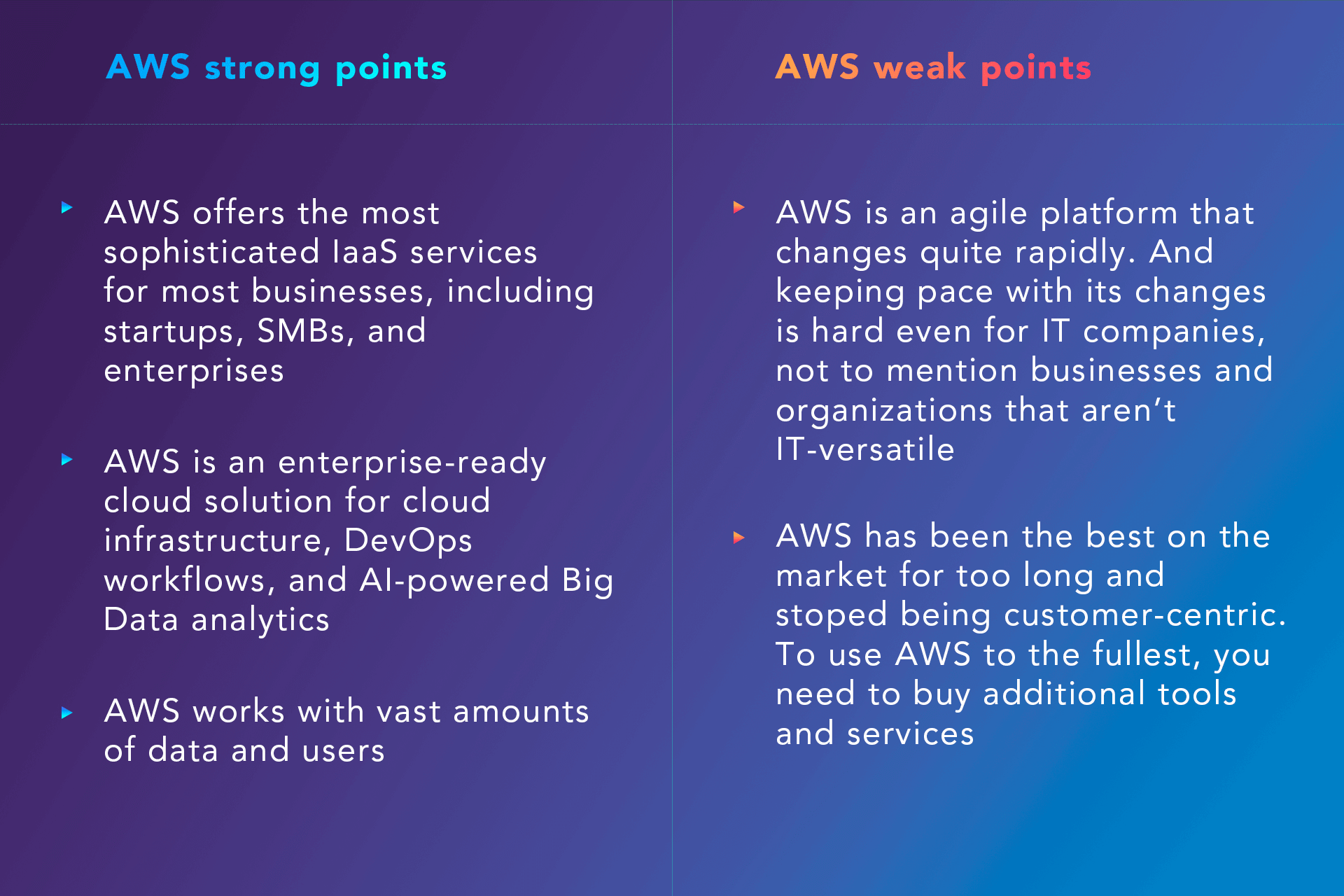
The following platform features top-notch DevOps services, intense use of Docker containers, and a rich number of offered apps and tools. AWS is built for software development needs, web applications, storing and processing Big Data, working with ML algorithms, etc.
AWS is an industry-leading cloud provider offering 42 availability zones in 16 regions worldwide. AWS servers provide Tier 1 security to keep your data safe and sound.
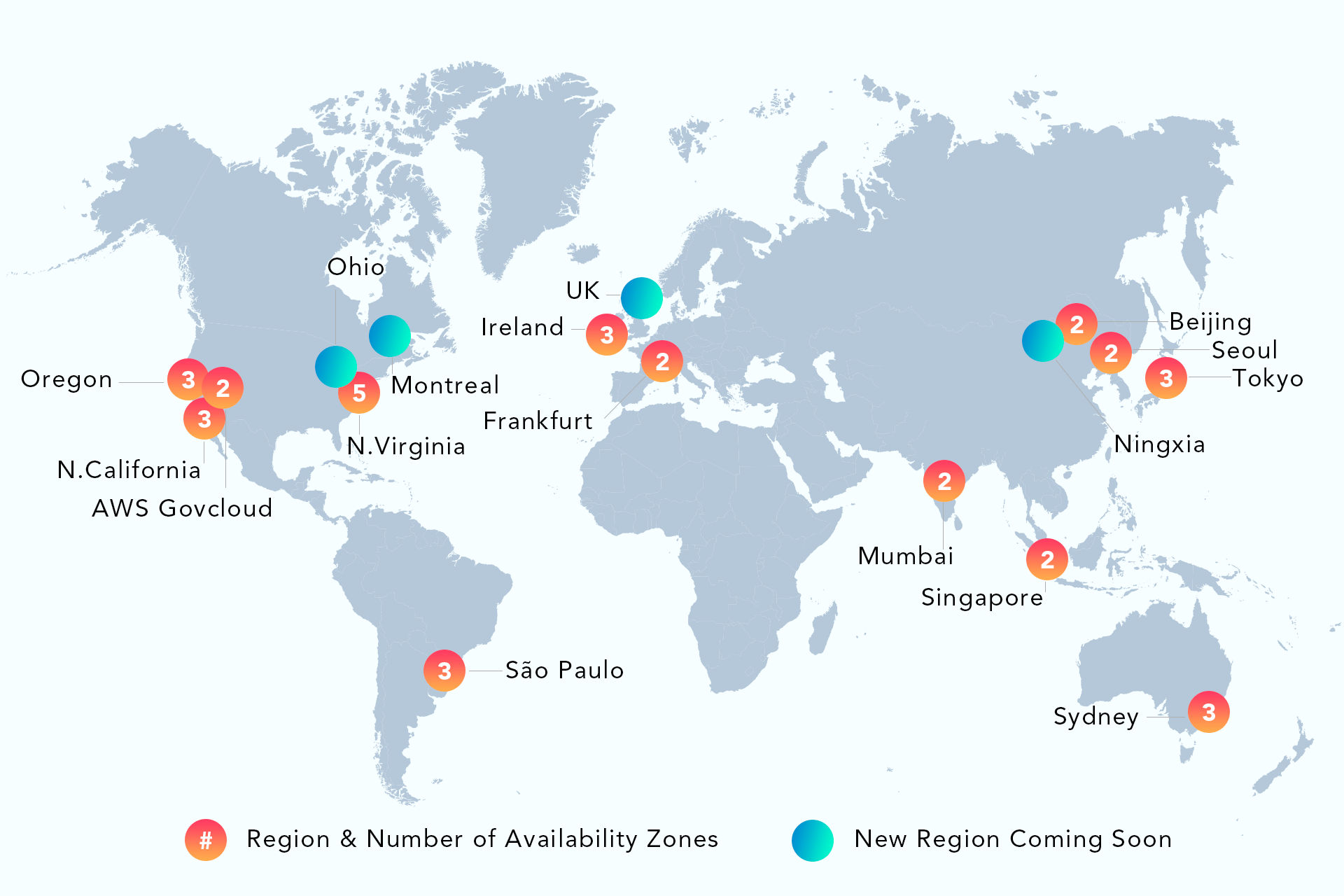
Still, AWS is the best choice for startups and companies with cloud-native applications. AWS is right up your street if you work with Linux-based OS or deal with Big Data.
Microsoft Azure
MS Azure (formerly Windows Azure) is another cloud infrastructure giant on the market built by Microsoft. The virtual private cloud is created for building, deploying, testing, and managing applications. Nowadays, MS Azure provides automation and DevOps services as well.
The key components of MS Azure cloud services:
- Virtual Machines with Hyper-V virtualization tools;
- Blob Storage keeps every file safe and sound;
- Azure Container Service to manage Docker-based containers;
- CDN;
- Azure Batch is a batch computing service;
- Azure Functions for serverless computing;
- Azure Marketplace for third-party integrations and additional services.
MS Azure has a vast array of datacenter located all over the globe to ensure Tier 1 security and multi-fault-domain SLA with enterprise support. Check the map to find out all MS Azure data hubs.
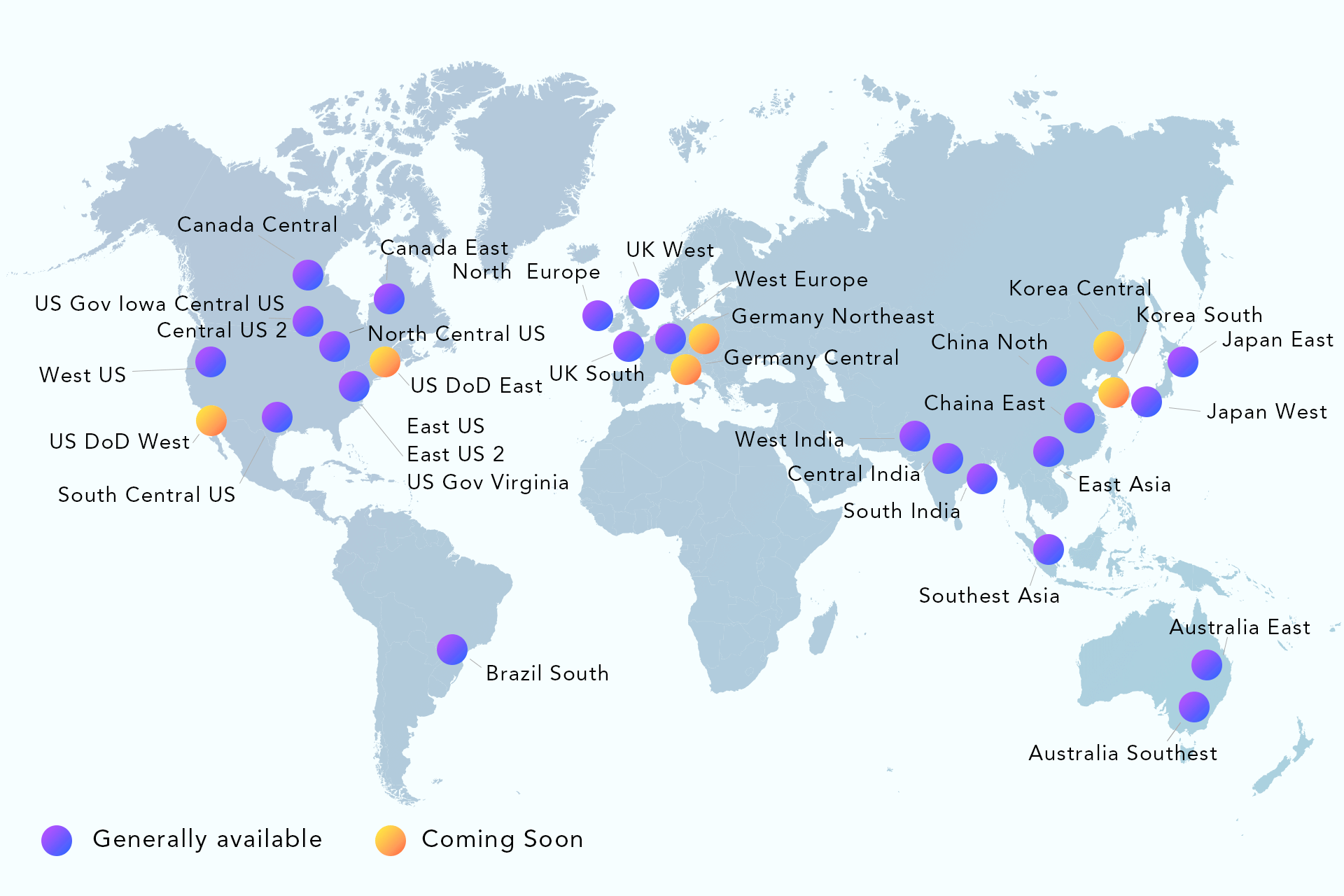
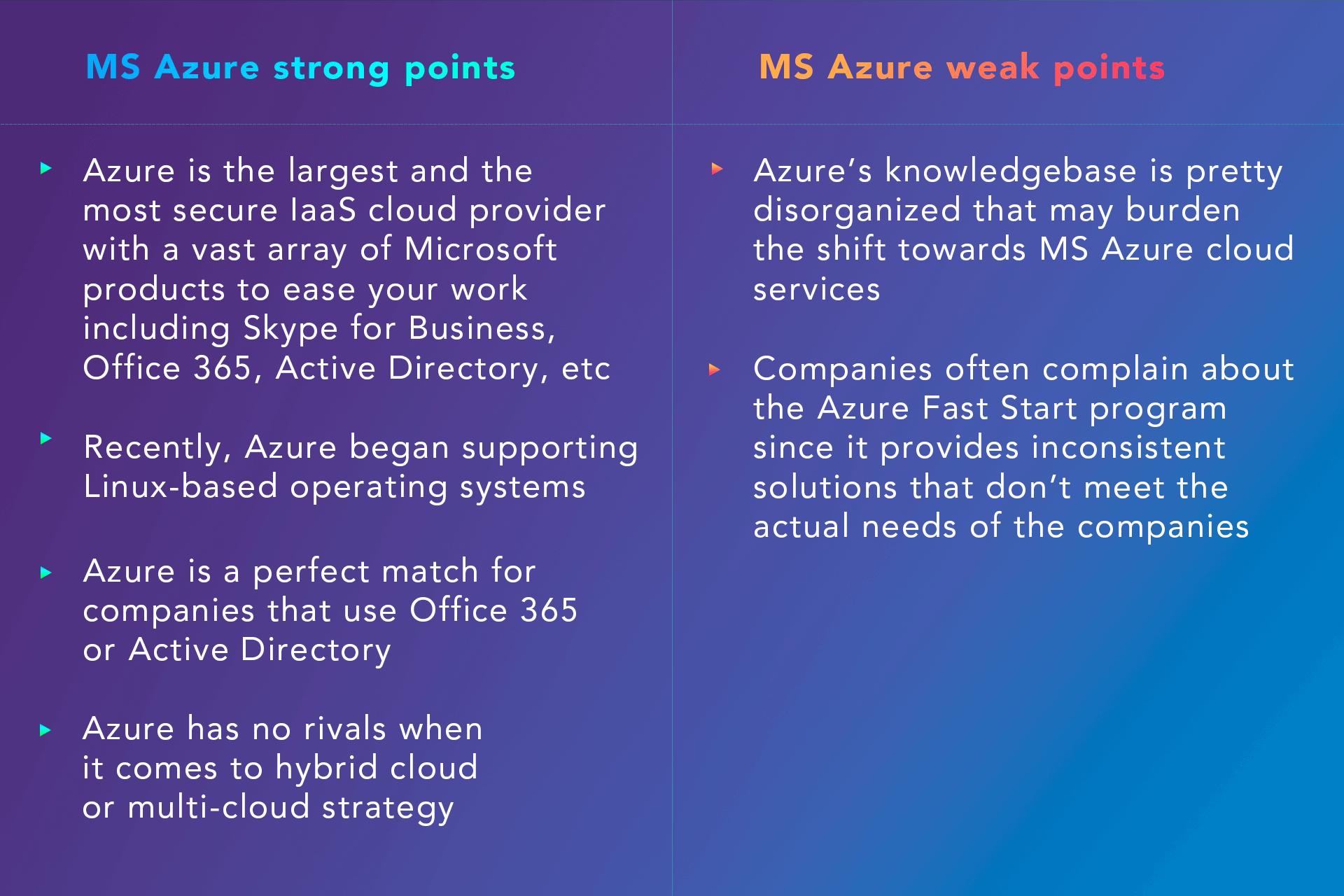
Taking everything mentioned above, the Microsoft Azure cloud platform is a perfect match for companies that already use Microsoft products or deliver Windows-based apps or services. Microsoft facilitates AI-first computing, so MS Azure is a great choice for deploying Windows-based ML and Big Data software solutions.
Read also: Cloud Orchestration
Summing Up
Every cloud platform has its advantages and disadvantages. At Softengi, we’re in the process of adopting MS Azure. MS Azure is the best choice for Windows-enabled enterprises that wish to manage corporate user account bases.




